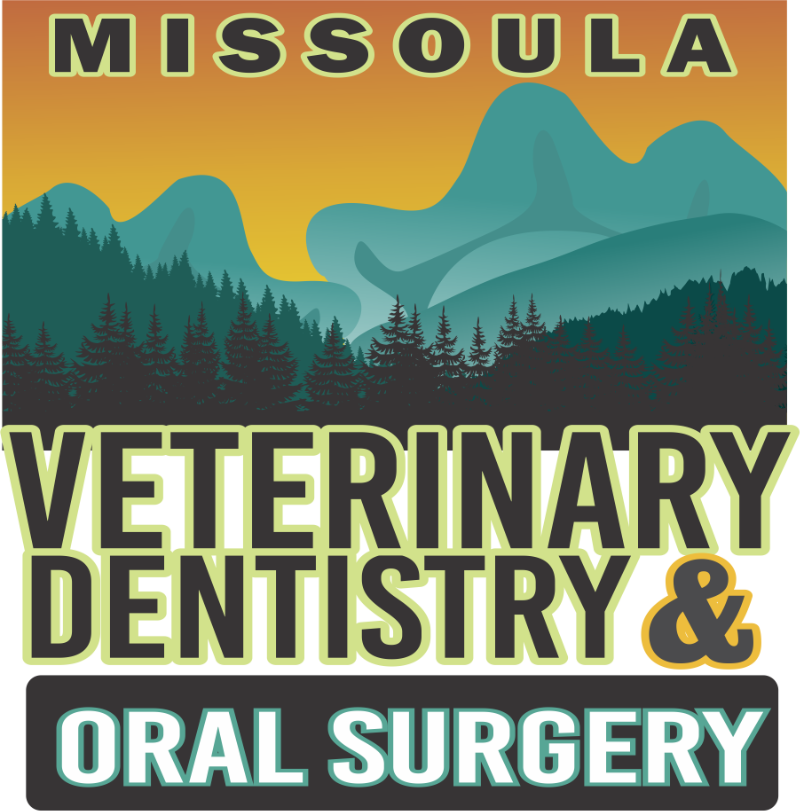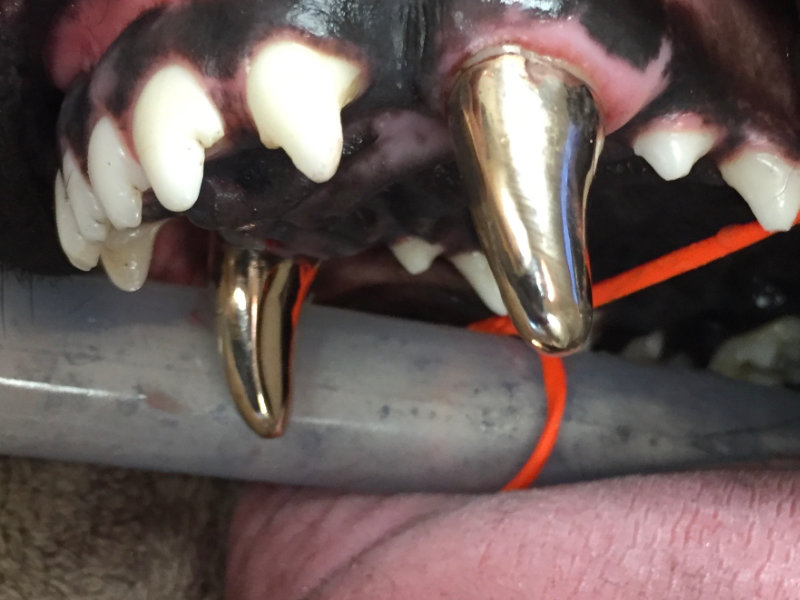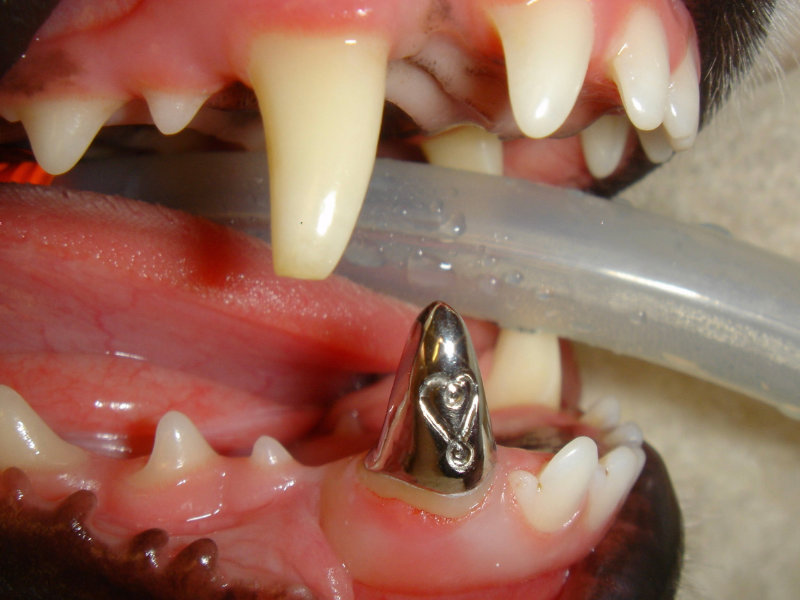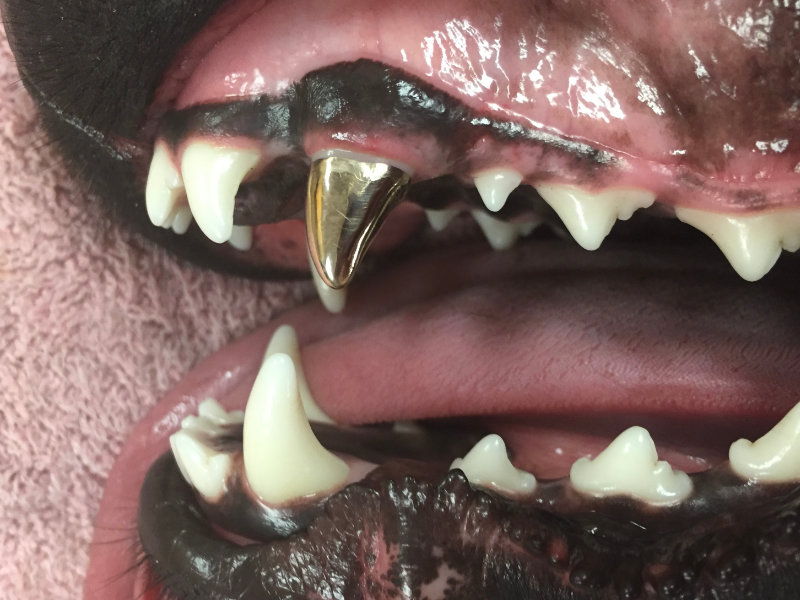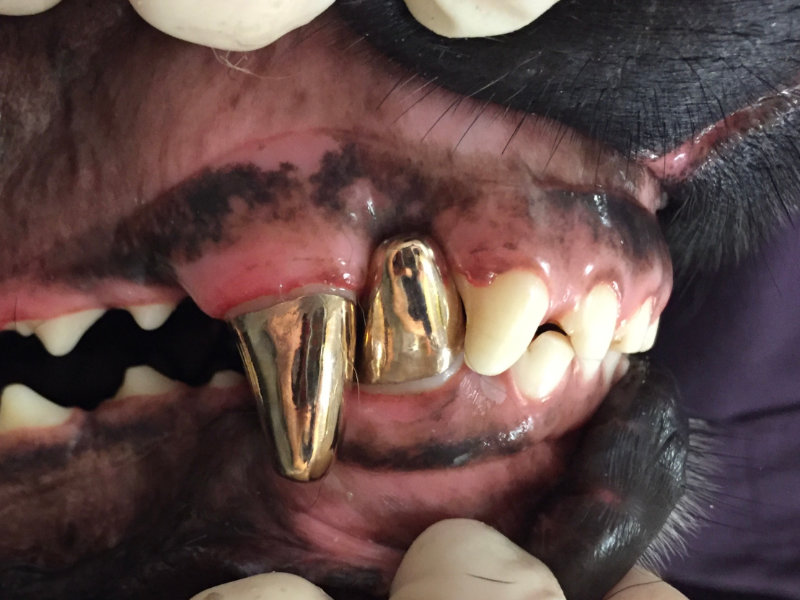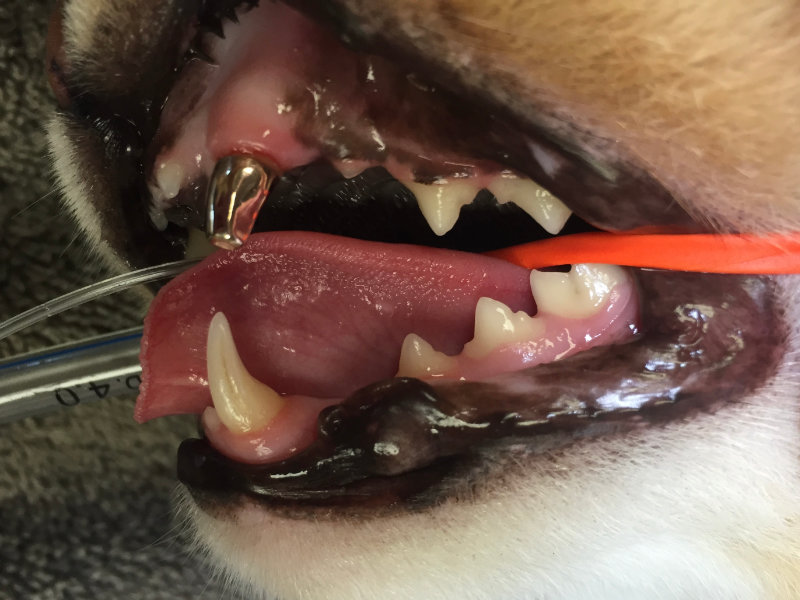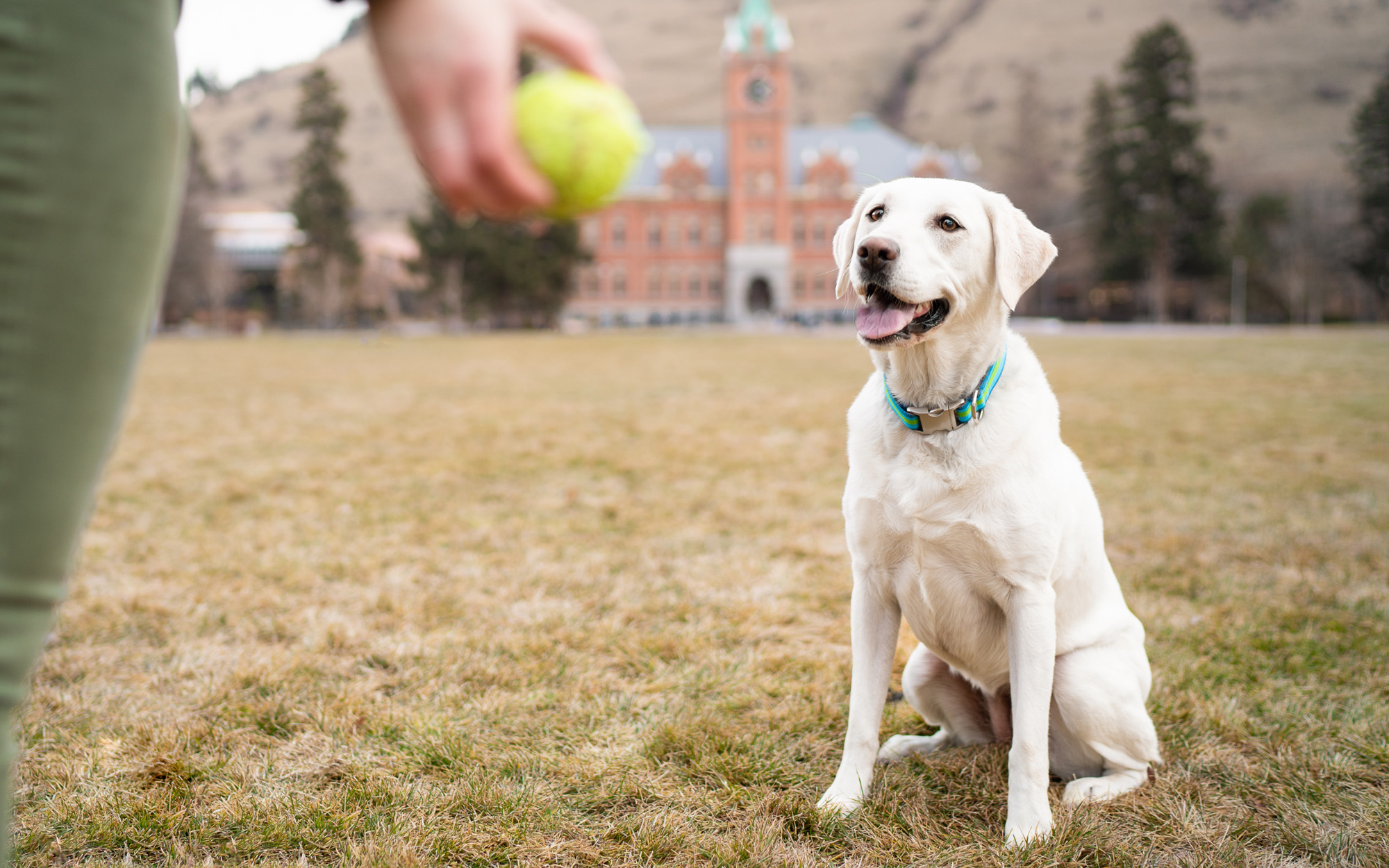
Prosthodontics
In veterinary dentistry, a dental crown is a prosthetic device used to restore and protect a damaged or compromised tooth. Similar to dental crowns in human dentistry, veterinary dental crowns are custom-made and designed to replicate the natural tooth structure.
A dental crown is typically recommended when a tooth has significant structural damage that cannot be adequately addressed with simple fillings or other restorative techniques. Crowns in dogs also reduce wear and tear on teeth treated by endodontic (root canal) treatment. The crown covers the entire visible portion of the tooth above the gum line, providing strength, protection, and restoring proper function.
The process of placing a dental crown in veterinary dentistry involves several steps. First, the damaged tooth is carefully evaluated, and any necessary dental treatments, such as a cleaning and root canal therapy to the affected tooth are performed. Then, the tooth is prepared by removing any compromised tissue and reshaping it to create space for the crown. An impression of the prepared tooth is taken to create a custom-fitted crown, which is fabricated in a dental laboratory. Once the crown is ready, your pet will come back to our office for a second procedure to have the custom fitted crown placed and cemented onto the tooth.
Veterinary dental crowns are typically made from durable materials such as metal alloys (such as gold or stainless steel), ceramic materials, or composite resin. The choice of material depends on factors such as the location of the tooth, the extent of damage, and the performance level required by the tooth in question.
Reasons and Benefits of Dental Crowns in Canine Dentistry
Fractured Teeth
Dogs may experience tooth fractures due to trauma, chewing on hard objects, or advanced dental disease. Dental crowns offer an effective solution for restoring fractured teeth, providing structural support and protecting the underlying dental pulp from infection and pain.
Root Canal Treatments
After a root canal treatment, a dental crown may be necessary to provide additional strength and protection to the treated tooth. Crowning the tooth ensures its long-term viability and reduces the risk of reinfection.
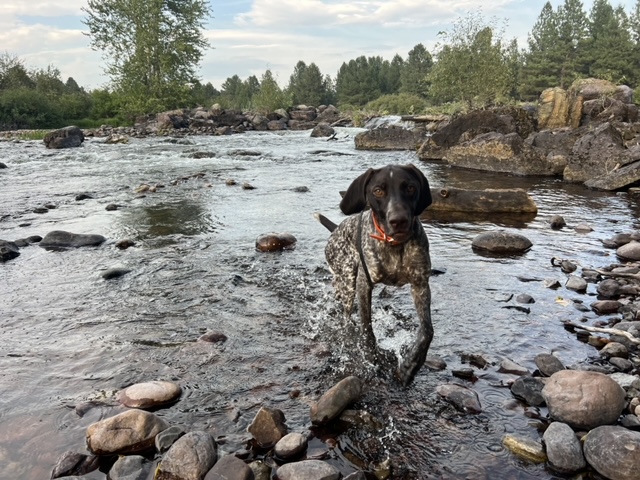
Potential Complications and Considerations
While dental crowns are generally safe and effective, complications can arise. These may include issues with crown fit, risk of crown dislodgment, and potential underlying tooth problems that may develop over time. Regular follow-up visits to the veterinarian are essential to monitor the crown’s condition and ensure the dog’s oral health is maintained.
